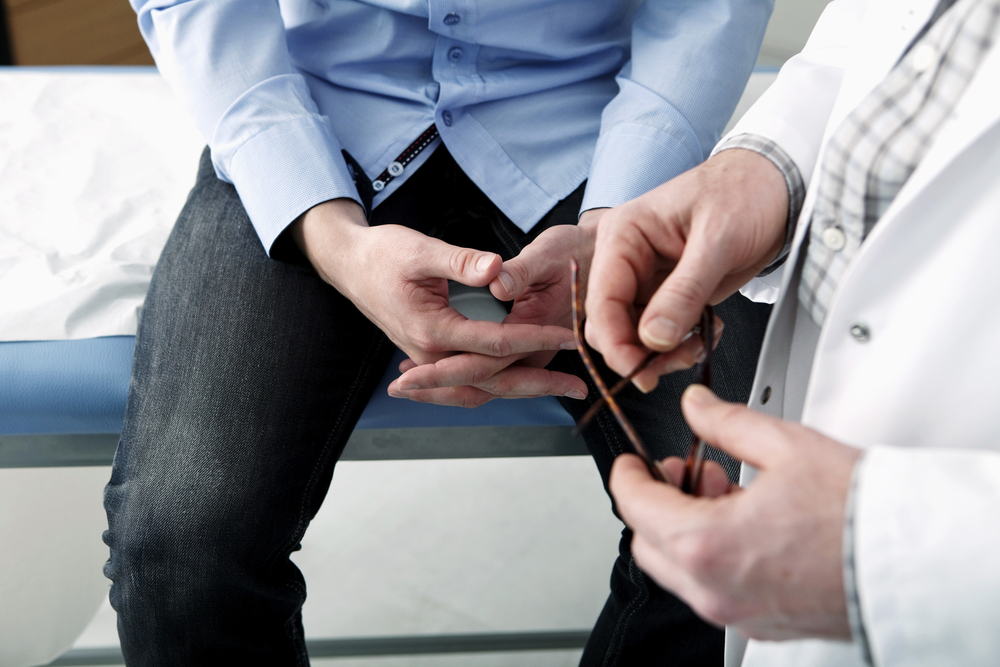Being told by your health care professional that you have prostate cancer is terrifying. But, most men diagnosed with prostate cancer don’t die from it. Even though a prostate cancer cure cannot be guaranteed, proper treatment can often stop the growth of abnormal cells in the prostate region. As you learn more about this health condition, you will better understand what it means for your future. This document will help you learn ways to live well with prostate cancer.
Prostate Cancer- A common condition in men
Once you are diagnosed with prostate cancer, you will automatically concerned about your future. This information will provide you some relief that this condition can often be cured or controlled. The problem of prostate cancer is common, especially in elder people.

It begins in the prostate region, a small gland present below the bladder in men. As the cancerous cells or abnormal cell grows, it can spread beyond the prostate to other parts of the body. In many cases, the growth of prostate cancer is slow.
Also Read: Ways to Protect yourself from Glaucoma
The most common prostate problems are stated below:
- An enlarged prostate
- Prostatitis, an infection in the prostate
- Prostate cancer
Prostate Cancer Symptoms
Changes that you need to look out for include:
- Urinating more often than usual
- Trouble starting to urinate
- Feeling of not emptying the gallbladder completely
- Dribbling urine after you finish urinating
- Needing to rush to urinate, you may feel sometimes its leak before you get there
Less common prostate cancer symptoms may include:
- Pain when ejaculating during sexual practice
- Appearance of blood in urine and semen
- Experience pain when urinating
- Difficulty getting an erection or maintaining erection need to satisfy your partner
These are not the common prostate problems and are more often linked to other health conditions such as diabetes or cardiovascular disorders.
The appearance of blood in the urine or semen can also be caused by other conditions. You should talk to your physician if you see blood in your urine or semen.
If you notice any of the above-mentioned changes, it’s a good idea to visit a health care specialist.
Treatment options for Prostate Cancer
Prostate Cancer can be treated and controlled in many ways. The prostate cancer treatments include medications, radiation therapy, and surgery. In some cases, monitoring cancer without treating it is a choice. The treatment plan your physician will recommend depends on various factors. These may include age, weight, the growth of cancer cells, spreading of the abnormal cells, as well as your overall health. It is important to discuss your treatment options with your physician’s team.
Your Physician Team
The team of health care professional to treat a prostate cancer should include the following:
- Urologist- A doctor who treats and perform surgery on the urinary system and male reproductive system.
- Radiation oncologist- An expert who uses radiation therapy to treat cancer.
- Medical Oncologist- A doctor who is specialized in treating cancer with the help of medications.
- Nurse Practitioner- A lady specialized in performing exams and managing follow-up care.
- Primary care physician- An expert who refers you to the appropriate specialists after analyzing your condition. He/she also monitors your overall health condition.
Living your life
No matter what type of prostate cancer treatment you choose, the life of a prostate cancer patient can be challenging. If you are a one who diagnosed with this condition, then your goal should be to live as normal life as possible. Your physician will help you to cope up with both physical and emotional issues that you go through during the treatment. The support of your relatives and friends will help you, too.
Also Read: Reason for the loss of eye lashes
Reaching out for support:
Being diagnosed with a condition like prostate cancer can be hard to cope up with. But, there is no need to keep your feelings to yourself. Try to talk with your friends and family members as much as you can. You can also join a prostate cancer support group. Share your concerns as this will help you get the emotional support that you required at times. For more information, talk to your health care specialist.




